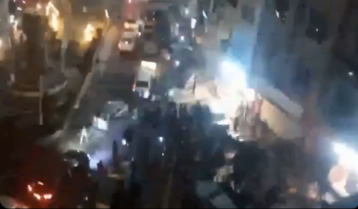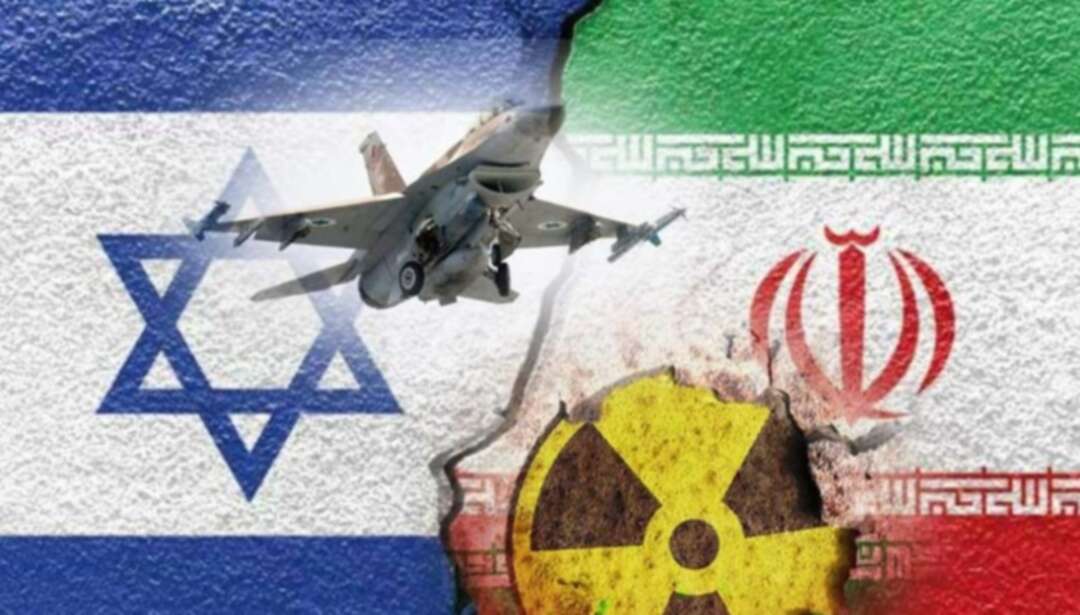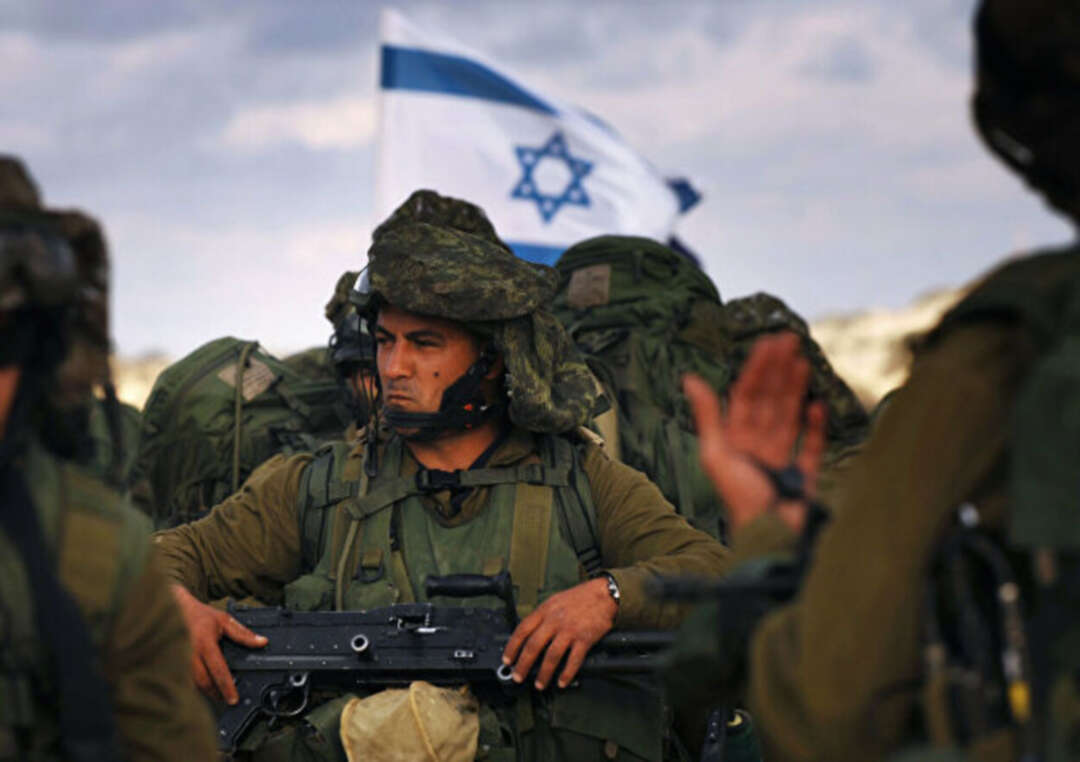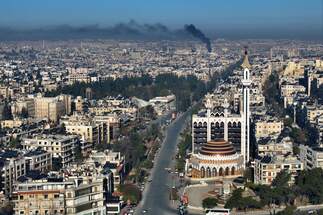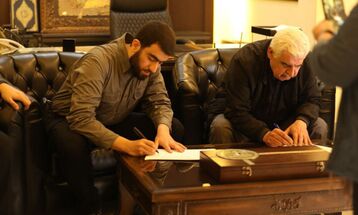-
Trump has handed over Isis fight in Syria, Turkey says, as offensive looms
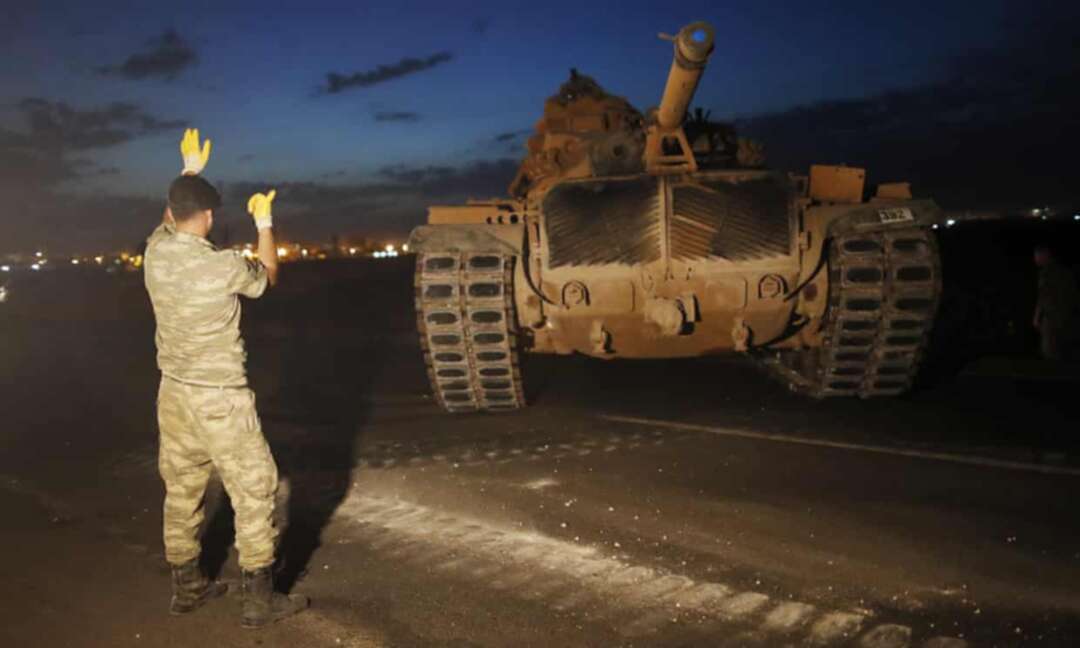
The Turkish government has claimed that Donald Trump has handed it the leadership of the military campaign against Isis, and warned its forces would be crossing into Syria “shortly”.
Kurdish military leaders inside Syria said they were braced for the invasion and claimed there had been an Isis attack on its former stronghold of Raqqa. But reports from the city suggested the attack had been small scale.
However, it deepened Kurdish fears they would soon find themselves fighting on several fronts, against Turkey, Isis and possibly Iranian or Russian-backed units aligned with Damascus, all without US support.
A spokesman for the Turkish president, Recep Tayyip Erdoğan, justified the impending invasion by saying that Trump, in a telephone conversation with Erdoğan on Sunday, had handed Turkey the mantle of the counter-Isis battle that the US has been waging alongside Kurdish forces since late 2014.
Fahrettin Altun, Erdoğan’s communications director and one of his closest aides, suggested Trump had given the Turkish leader the green light for an invasion, contradicting denials from White House officials.
“During a phone call with President Recep Tayyip Erdoğan on Sunday, President Trump agreed to transfer the leadership of the counter-Islamic State campaign to Turkey,” Altun wrote in a commentary in the Washington Post published on Tuesday evening. “The Turkish military, together with the Free Syrian Army, will cross the Turkish-Syrian border shortly.”
https://twitter.com/brett_mcgurk/status/1181736182465478657
Altun also suggested that the Turkish operation could be far more extensive than the 32km-deep border safe zone that US and Turkish officials had been working together to establish before Erdogan announced the planned assault.
The southern border of the safe zone could reach as far as Deir Ezzor and Raqqa provinces, he said, effectively signalling Turkey could seek to take over the entire area currently controlled by the Syrian Democratic Forces (SDF).
In his address to the UN General Assembly last month Erdoğan had floated an expanded zone as means to resettle Syrian refugees in Turkey, saying it could hold as 3 million people.
Altun portrayed the invasion as a counter-terrorism operation, and described Kurdish forces in north-eastern Syria, the YPG, as “armed thugs” who should not resist the Turkish takeover of the area.
“It remains to be seen whether YPG militants will agree to the change in the campaign’s leadership,” he wrote. He added in a later tweet: “YPG militants have two options: They can defect or we will have stop them from disrupting our counter-Isis efforts.”
The Syrian Democratic Forces said late on Tuesday night that Turkish forces were already attacking near the border. “The Turkish military is shelling one of our points on SereKaniye Border with Turkey,” it said in a tweet, referencing the key border town of Ras al-Ayn.
It was one of the places from which US troops withdrew on Monday, according to the UK-based Syrian Observatory for Human Rights.
“There were no injuries to our forces. We didn’t respond to this unprovoked attack,” the SDF said.
Early on Monday, US special forces near the Syrian-Turkish border were ordered to withdraw from their posts, to the surprise of Americans and Kurdish commanders. The Pentagon said on Tuesday the redeployment was necessary to avoid US troops being caught in the crossfire.
“Unfortunately, Turkey has chosen to act unilaterally,” Jonathan Hoffman, chief Pentagon spokesman, said. “As a result we have moved the US forces in northern Syria out of the path of potential Turkish incursion to ensure their safety. We have made no changes to our force presence in Syria at this time.”
There are also British and French special forces in the region and in the event of a major Turkish-Kurdish conflict the Guardian understands they would be tasked with the bolstering the security of camps where captured Isis fighters are being guarded by the Kurds.
“We are nervous, and very much against this Turkish offensive,” a European official said on Tuesday. The official expressed hoped that the offensive could be limited in scope and not trigger a full-scale conflict with the YPG (and its broader coalition, the SDF), that could lead to the scattering of Isis prisoners and the movement’s resurgence.
“If it is an unmitigated Turkish offensive, we are going to suffer serious consequences,” the official said.
Military analysts warn of the possibility of a multi-pronged attack on Kurdish-held areas, with Turkey advancing from the north, and militias aligned with the Damascus regime, supported by Iran and Russia striking from the south.
“Russia and Turkey have already discussed Turkey’s upcoming operation,” Jennifer Cafarella, research director at the Institute for the Study of War, said. “Russia supports it at least tacitly and may actually have entered into a general agreement with Turkey on the shape of what is to come in the north-east.”
Joseph Votel, who headed US central command until March and was instrumental in establishing the partnership with the Kurds, said the abrupt policy decision to seemingly abandon Washington’s Kurdish partners could not have come at a worse time.
In an article he co-wrote on the Defense One military news site Votel said: “This policy abandonment threatens to undo five years’ worth of fighting against Isis and will severely damage American credibility and reliability in any future fights where we need strong allies.”
source:theguardian
You May Also Like
Popular Posts
Caricature
BENEFIT AGM approves 10%...
- March 27, 2025
BENEFIT, the Kingdom’s innovator and leading company in Fintech and electronic financial transactions service, held its Annual General Meeting (AGM) at the company’s headquarters in the Seef District.
During the meeting, shareholders approved all items listed on the agenda, including the ratification of the minutes of the previous AGM held on 26 March 2024. The session reviewed and approved the Board’s Annual Report on the company’s activities and financial performance for the fiscal year ended 31 December 2024, and the shareholders expressed their satisfaction with the company’s operational and financial results during the reporting period.
The meeting also reviewed the Independent External Auditor’s Report on the company’s consolidated financial statements for the year ended 31 December 2024. Subsequently, the shareholders approved the audited financial statements for the fiscal year. Based on the Board’s recommendation, the shareholders approved the distribution of a cash dividend equivalent to 10% of the paid-up share capital.
Furthermore, the shareholders endorsed the allocation of a total amount of BD 172,500 as remuneration to the members of the Board for the year ended 31 December 2024, subject to prior clearance by related authorities.
The extension of the current composition of the Board was approved, which includes ten members and one CBB observer, for a further six-month term, expiring in September 2025, pending no objection from the CBB.
The meeting reviewed and approved the Corporate Governance Report for 2024, which affirmed the company’s full compliance with the corporate governance directives issued by the CBB and other applicable regulatory frameworks. The AGM absolved the Board Members of liability for any of their actions during the year ending on 31st December 2024, in accordance with the Commercial Companies Law.
In alignment with regulatory requirements, the session approved the reappointment of Ernst & Young (EY) as the company’s External Auditors for the fiscal year 2025, covering both the parent company and its subsidiaries—Sinnad and Bahrain FinTech Bay. The Board was authorised to determine the external auditors’ professional fees, subject to approval from the CBB, and the meeting concluded with a discussion of any additional issues as per Article (207) of the Commercial Companies Law.
Speaking on the company’s performance, Mr. Mohamed Al Bastaki, Chairman BENEFIT , stated: “In terms of the financial results for 2024, I am pleased to say that the year gone by has also been proved to be a success in delivering tangible results. Growth rate for 2024 was 19 per cent. Revenue for the year was BD 17 M (US$ 45.3 Million) and net profit was 2 Million ($ 5.3 Million).
Mr. Al Bastaki also announced that the Board had formally adopted a new three-year strategic roadmap to commence in 2025. The strategy encompasses a phased international expansion, optimisation of internal operations, enhanced revenue diversification, long-term sustainability initiatives, and the advancement of innovation and digital transformation initiatives across all service lines.
“I extend my sincere appreciation to the CBB for its continued support of BENEFIT and its pivotal role in fostering a stable and progressive regulatory environment for the Kingdom’s banking and financial sector—an environment that has significantly reinforced Bahrain’s standing as a leading financial hub in the region,” said Mr. Al Bastaki. “I would also like to thank our partner banks and valued customers for their trust, and our shareholders for their ongoing encouragement. The achievements of 2024 set a strong precedent, and I am confident they will serve as a foundation for yet another successful and impactful year ahead.”
Chief Executive of BENEFIT; Mr. Abdulwahed AlJanahi commented, “The year 2024 represented another pivotal chapter in BENEFIT ’s evolution. We achieved substantial progress in advancing our digital strategy across multiple sectors, while reinforcing our long-term commitment to the development of Bahrain’s financial services and payments landscape. Throughout the year, we remained firmly aligned with our objective of delivering measurable value to our shareholders, strategic partners, and customers. At the same time, we continued to play an active role in enabling Bahrain’s digital economy by introducing innovative solutions and service enhancements that directly address market needs and future opportunities.”
Mr. AlJanahi affirmed that BENEFIT has successfully developed a robust and well-integrated payment network that connects individuals and businesses across Bahrain, accelerating the adoption of emerging technologies in the banking and financial services sector and reinforcing Bahrain’s position as a growing fintech hub, and added, “Our achievements of the past year reflect a long-term vision to establish a resilient electronic payment infrastructure that supports the Kingdom’s digital economy. Key developments in 2024 included the implementation of central authentication for open banking via BENEFIT Pay”
Mr. AlJanahi concluded by thanking the Board for its strategic direction, the company’s staff for their continued dedication, and the Central Bank of Bahrain, member banks, and shareholders for their valuable partnership and confidence in the company’s long-term vision.
opinion
Report
ads
Newsletter
Subscribe to our mailing list to get the new updates!


